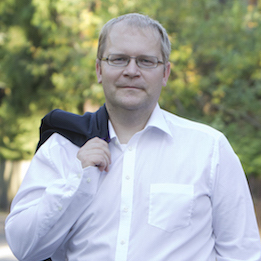The refugee crisis in Europe that was predicted a few months ago is now a reality. This crisis, if not dealt with properly or quickly, could divide the European Union, as well as increase tensions in and between the EU member countries. This is the biggest refugee wave in Europe since the Second World War and the most complicated crisis for the European Union in the last decades.
Many people have seen the recent photo of 3-year-old Syrian boy Aylan Kurdi lying alone and dead on a beach in Turkey. His older brother and mother also lost their lives in the sea.
On the side of an Austrian motorway there was a van with dozens of suffocated refugees, including children.
Those are just two tragic examples of the catastrophe unfolding in the vicinity of Europe and now already in Europe. Nothing has been done about the causes of that catastrophe so far, even though hundreds of thousands of people have been killed and over six million people have been left homeless in the Syrian civil war.
The world, including Europe, has not yet succeeded in achieving peace, in other words putting an end to the war in Syria and stopping ISIS extremists. Peace must be more actively strived for in Syria, Iraq, Libya and many other countries near Europe, because that is the only solution to stop the migration of war refugees. Still, ending the war is in the hands of local leaders, not Brussels or Washington.
Yes, a lot more has to be done to achieve peace. Refugee camps in the Middle East must be better equipped, human traffickers must be fought, more humane and less dangerous ways to treat refugees must be found. That, however, is time-consuming and the effect is slow. But people are in peril and desperate right now and are hoping for a chance to save their children and themselves and to start a new life somewhere, a life that is not filled with violence. They also hope to possibly return to their home country in the future. That notion is supported by the fact that before the war in Syria there was a minimal number of economic refugees from there. The wave of refugees started with the war, when people began fleeing to save themselves and their children.
Time has run out
The life of young Aylan was cut short and it showed us in a cruel way that time has run out. European leaders cannot postpone their decisions and actions any longer. Every delayed day makes the situation worse. There is no clear reason why the EU ministers of internal affairs and ministers of justice are not meeting earlier than on September 14th and government leaders even later. The refugee crisis needs a fast response, because in addition to the refugees’ suffering, the pictures of people drowning in the Mediterranean Sea, of suffocated people in a van, of desperate people in the Budapest train station diminish the EU citizens’ faith in the EU’s ability to ensure the protection of human rights in Europe.
Unfortunately, fast action is not characteristic to the European Union, because the EU is not designed to deal with crises that develop quickly. The EU wishes to reach consensus between the 28 member countries and that takes time, even assuming that all the members are ready to decide and there is enough will to do something. That includes the assumption that some Eastern European countries will stop creating their refugees-are-not-our-problem coalitions and are actually ready to help the victims of this humanitarian catastrophe, instead of merely sticking to formal talk. Refusing to help war refugees hurts the human dignity of many Europeans.
The deepening of the refugee crisis is grist to the mill for nationalist and anti-EU political forces in many countries. Therefore any delay will make reaching decisions in the near future even more complicated.
Modern Europe is what it is because of the values that made Estonia wish to join the free world as quickly as possible. Human rights, law-governed state and respect for life. All of that should be the basis for future decisions both in Brussels and in Tallinn.
Many risks involved
The delay of the refugee crisis includes other risks, as well. If effective decisions cannot be made and the crisis keeps expanding, there will probably not be immediate changes in other areas, but the end will be near for free movement in the Schengen Area. It is also possible to have a formal and numb attitude towards the budget requests of poorer EU countries, free movement of work force inside the EU, and the continuous roars of Russia. Today’s indifference in actively helping to solve the refugee crisis will have serious consequences on Europe as a whole sooner rather than later. And on Estonia, as well.
If the Prime Minister of Hungary says cynically that the refugee problem concerns only Germany, it is a big step towards shattering the EU from the inside. Reasoning his statement by saying that the refugees want to go to Germany, not stay in Hungary, adds another dose of cynicism. If Hungary has done everything to officially announce that refugees are not welcome there and the attitude against people who have suffered is hostile, then why would people want to stay in a country where they are treated in a hostile way again?
The situation in Budapest’s train station, in the capital of one of the EU members, where refugees, even children, sleep on the floor for many days, is not indicative of too much helpfulness, not to mention following the convention of children’s rights.
What to do?
What should the EU leaders do? There should be a change in the Dublin Regulation which states that refugees should be handled by the member country where refugees first entered the EU. That has been a big part of the EU’s internal problem, because Greece and Italy are being crushed under the weight of the refugees. It is also clear that there is no longevity in a situation where 75% of the refugees are taken in by five EU member countries, whereas many other members try to ignore Europe’s collective problem.
The EU leaders must find an adequate solution for distributing war refugees in the EU in a humane way, so that these people would be able to start over and that the burden would not be too heavy on any country. It is clear that the decisions of the last European Council summit are not working, because the number of war refugees has increased in a matter of weeks, not to mention their inhumane treatment in some member countries.
At the same time we should not forget the numbers that we are talking about. There are 500 million people in Europe. This year 320,000 war refugees have entered Europe. That is less than 0.1% of the population of Europe. Germany has announced that they are willing to accept 800,000 war refugees, which is 1% of their population. That means that Europe is able to help war refugees, there just has to be will to do so.
Estonia and war refugees
The number of war refugees getting help in Estonia that has been discussed so far would be 0.01% of the population. They could all fit in a big articulated bus or a plane. Estonia is able to help those people and give them a new start. It would also be possible for Estonia to handle an amount of people who would fit in many buses or planes. In the upcoming meetings of the EU ministers Estonia should proceed from the possibility of finding an actual solution, from the actual need to help war refugees and Estonia’s actual capability. The current decisions made by the European Council will have to change anyway.
It should also be taken into consideration that if the EU fails to find a solution to the refugee crisis, there will be repercussions in areas that are very important to Estonia. Everything is connected and there is no longevity in selective solidarity.
Estonian politicians and other leaders should take a clear initiative to explain, discuss and decide, considering that Estonia is a country with a conscience that respects human rights. We should leave behind prejudices and fears that a small number of war refugees will lead to an apocalypse.
The biggest humanitarian crisis in Europe should be dealt with as much consensus between political parties as possible. The government should help local governments to find the best effective solutions, so that the war refugees coming to Estonia could go on with their lives as quickly as possible, start working and go to school. Estonian society is able to handle it.
Our attitude towards the war refugees coming to Estonia is also important. It is elementary that people’s motivation to blend in and find a job as quickly as possible is greater if they feel a friendly attitude towards them. A hostile reception will cause something else entirely. It is completely human.
We should also try to draw a line between those who are understandably worried about our uncertain future and those who knowingly give heated hate speeches.
Hate speeches, as well as public and hidden intolerance could poison Estonian society for a long period. It is especially bad when hate speeches are made by political forces. In that case they are political criminals, plain and simple. The penal code should be amended to not allow hate speeches and threats.
I am convinced that once the true picture becomes more clear and prejudices are shattered, the majority of Estonian society will be ready. Also, the European Union will stick together even in difficult situations and Estonia will help with war refugees as much as possible by giving them a chance to start a new life, with no fear of violence. Just like many other societies treated our tens of thousands of compatriots who fled Estonia fearing violence in the last century.
Little Aylan’s and his older brother Galip’s lives were cut short. Their father buried his sons and his wife in Syria. The country they had fled to escape from war. We in Estonia are able to help, so there would be less lives cut short. Without compassion, we are worth nothing.

